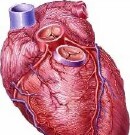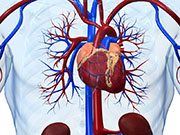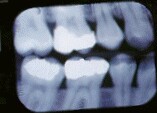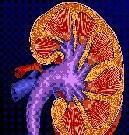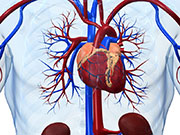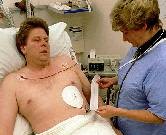Benznidazole Tx Explored in Chagas’ Cardiomyopathy
Reduces serum parasite detection but does not reduce cardiac clinical deterioration through 5 years
Bivalirudin Doesn’t Lower Major Cardiovascular Event Rate in ACS
No decrease in rate of major CV events, net adverse clinical events for patients undergoing PCI
August 2015 Briefing – Cardiology
Here are what the editors at HealthDay consider to be the most important developments in Cardiology for August 2015. This roundup includes the latest...
Resting Heart Rate, HR Variability May Help ID Functional Disability
Researchers eye earlier detection of decline
CDC: Smoking Rate Falls to 15.2 Percent in the United States
Higher tobacco taxes, tough messages contributing to decline
Periodontal Disease Predicts CAC Progression in Type 1 Diabetes
No link with coronary artery calcium progression for individuals without diabetes
Nonalbuminuric CKD Ups Cardiovascular Morbidity in T1DM
Also linked to increase in all-cause mortality, but not albuminuria or end-stage renal disease
Intravenous Cyclosporine Doesn’t Improve STEMI Outcomes
For patients undergoing PCI, cyclosporine doesn't prevent adverse left ventricular remodeling at 1 year
Leadless Cardiac Pacemaker Deemed Safe, Effective
In most patients, leadless cardiac pacemaker met prespecified pacing and sensing requirements
Azithromycin Routine in Hospital Despite Risk for QTc Prolongation
Providers not considering risk of QTc-prolonging meds accumulation, authors say







